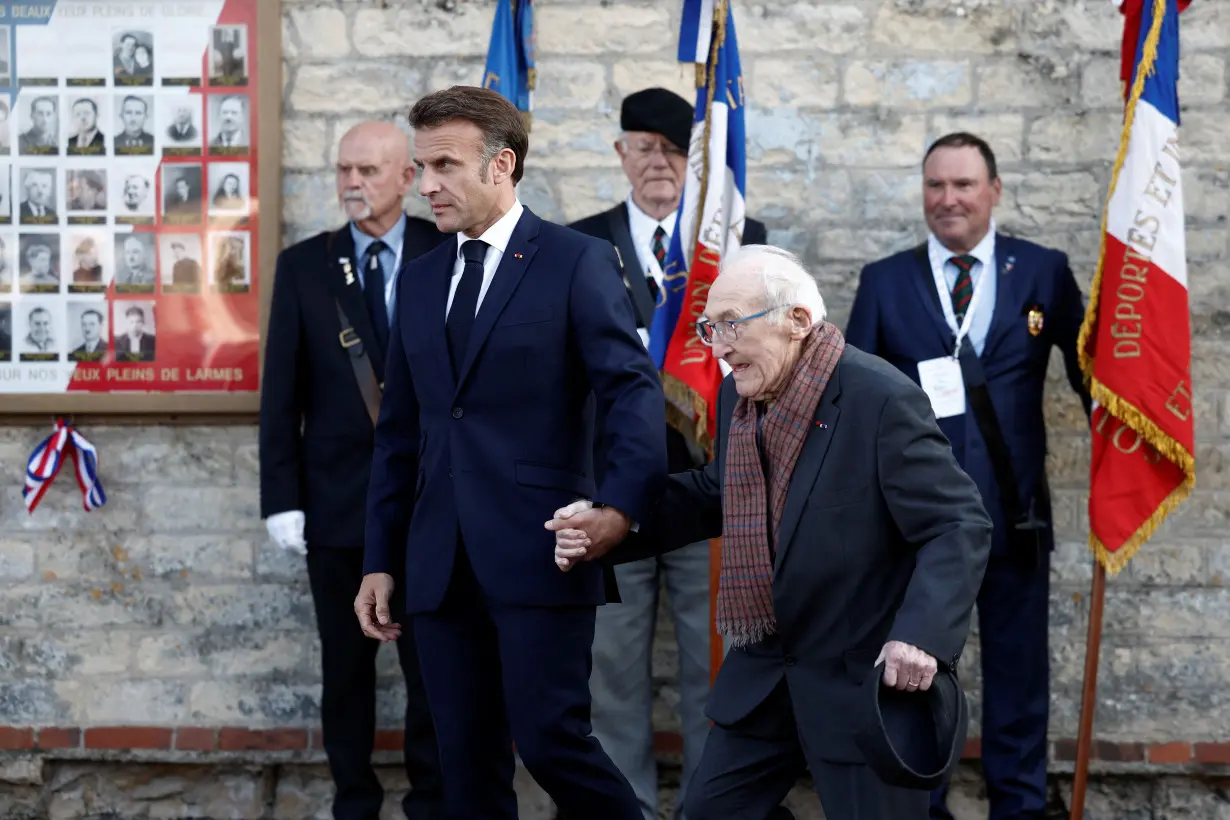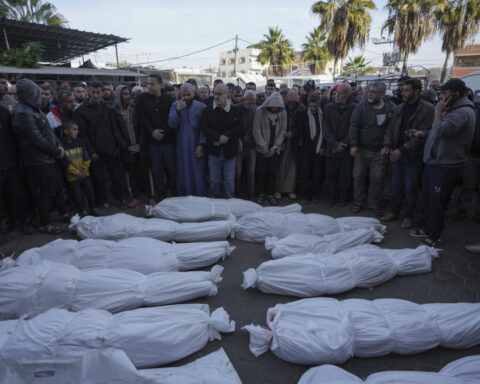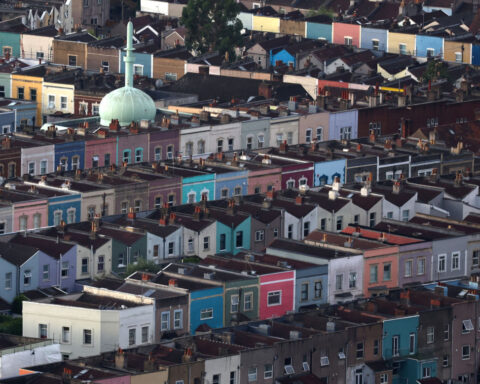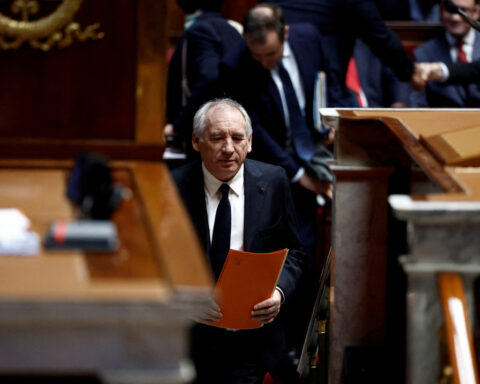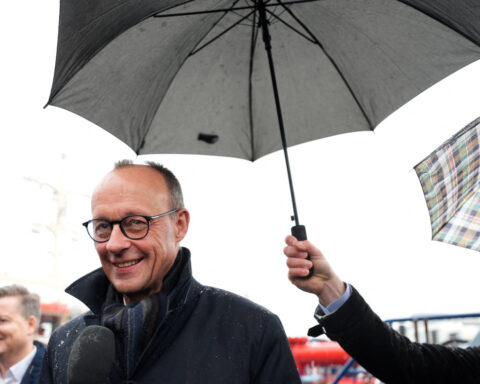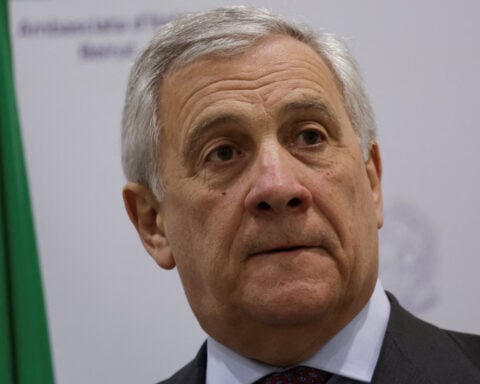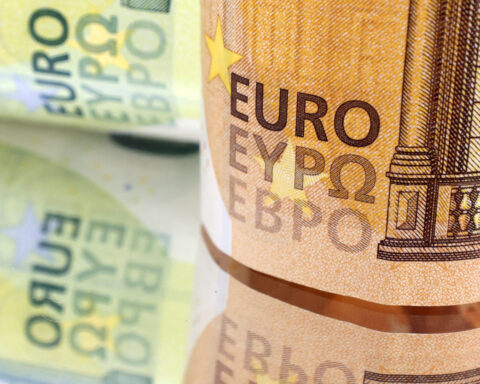By Elizabeth Pineau
SAINT-LO, France (Reuters) -As world leaders gathered to celebrate the 80th anniversary of D-Day, French President Emmanuel Macron paid tribute to the thousands of civilian victims of Allied bombardments on that day and in the months-long Battle of Normandy that followed.
Thousands of Allied soldiers died on June 6th, 1944, on the beaches of Normandy, but so did French civilians. Estimates of the numbers of civilians killed in Normandy as allies took back control of the region range from 13,000-20,000.
"Eighty years later, the Nation must recognise with clarity and strength the civilian victims of Allied bombings, in Normandy, and elsewhere on our soil. We must bring this memory into full light," Macron said in Saint-Lo, a city largely destroyed by Allied bombings.
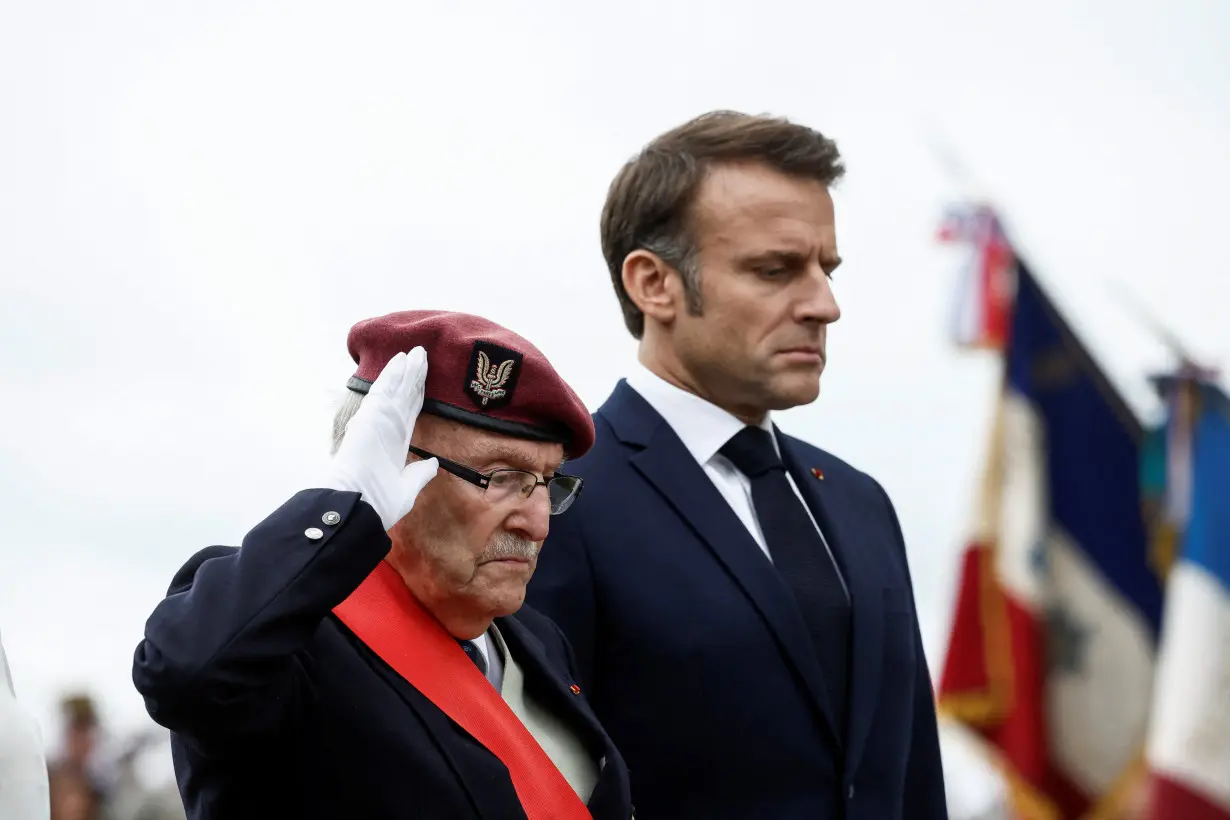
"Without concealing anything, but without confusing anything. Because the inhabitants of Saint-Lo never mixed hatred or resentment with their sorrow," he said.
Saint-Lo was targeted by Allied bombings because it was a key transport hub, and they wanted to prevent Germany from being able to use it to push back the Allied troops.
"Saint-Lo (is) a martyr city, sacrificed to free France," Macron said.
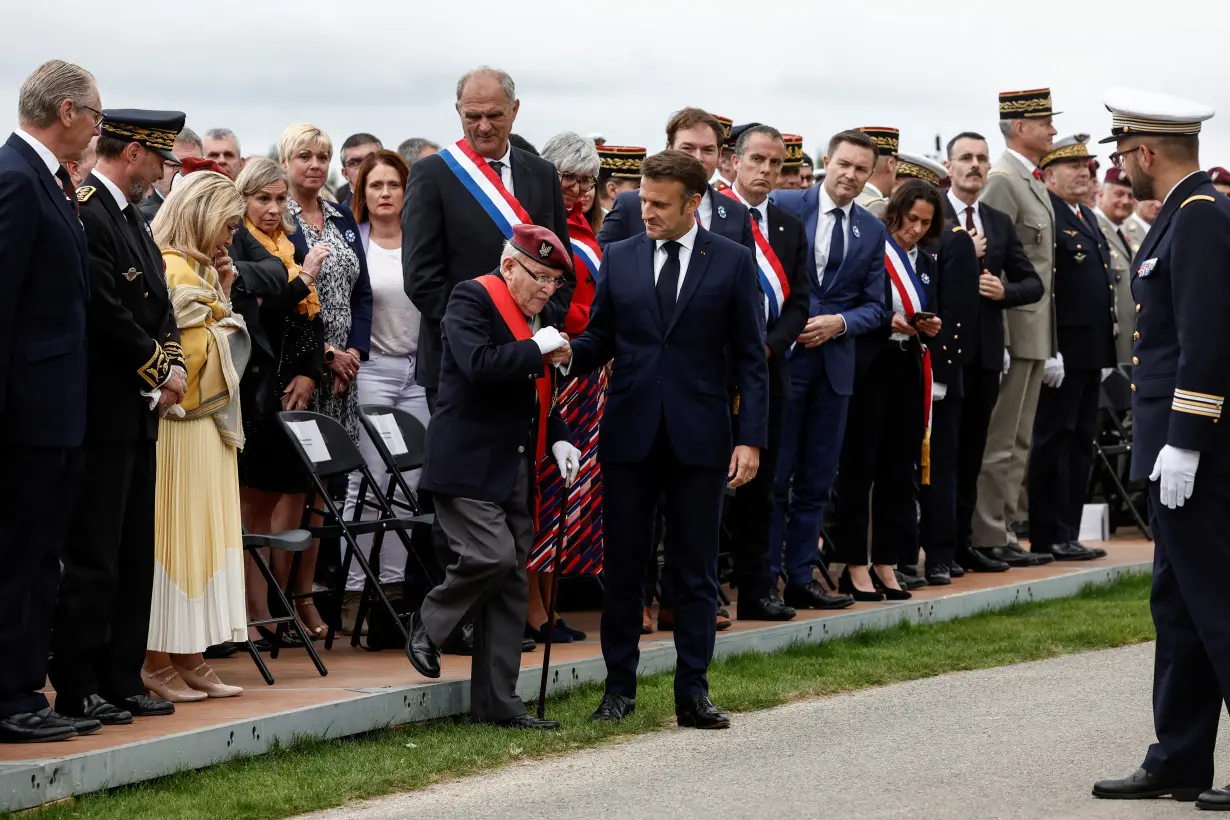
Eighty-seven year-old Michel Finck, who is from Saint-Lo, was among those who had come to listen to Macron.
Speaking to Reuters ahead of the speech, he cried as he recalled D-Day.
"Our house was destroyed. Families in our street were decimated. The family transport business was also destroyed, and we left for Cherbourg (a town over 80 km away)," Finck said.
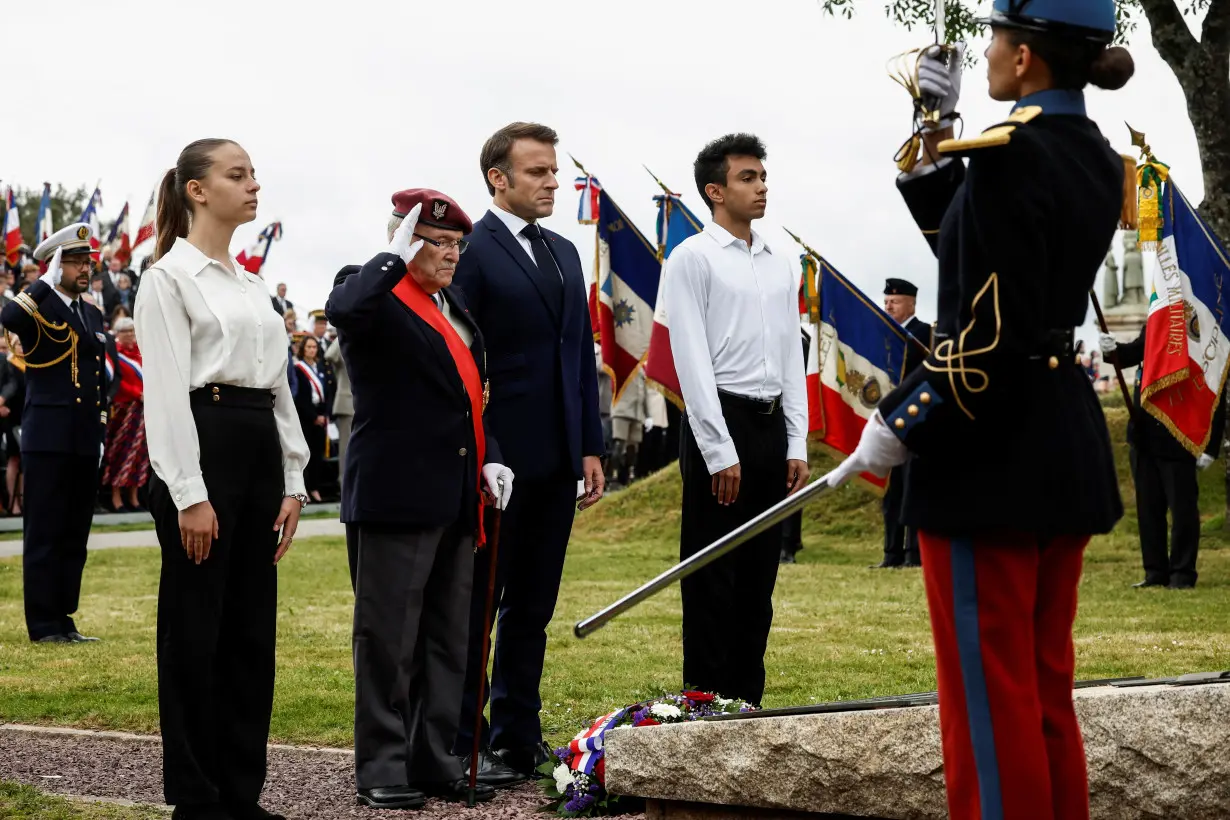
He left on foot with his brother. At one point, German soldiers helped them cross a bridge.
"There were planes, bombs ... this is not something you forget easily," he told Reuters, shedding more tears. The family survived, and they later returned to live in Saint-Lo.
TRAUMA
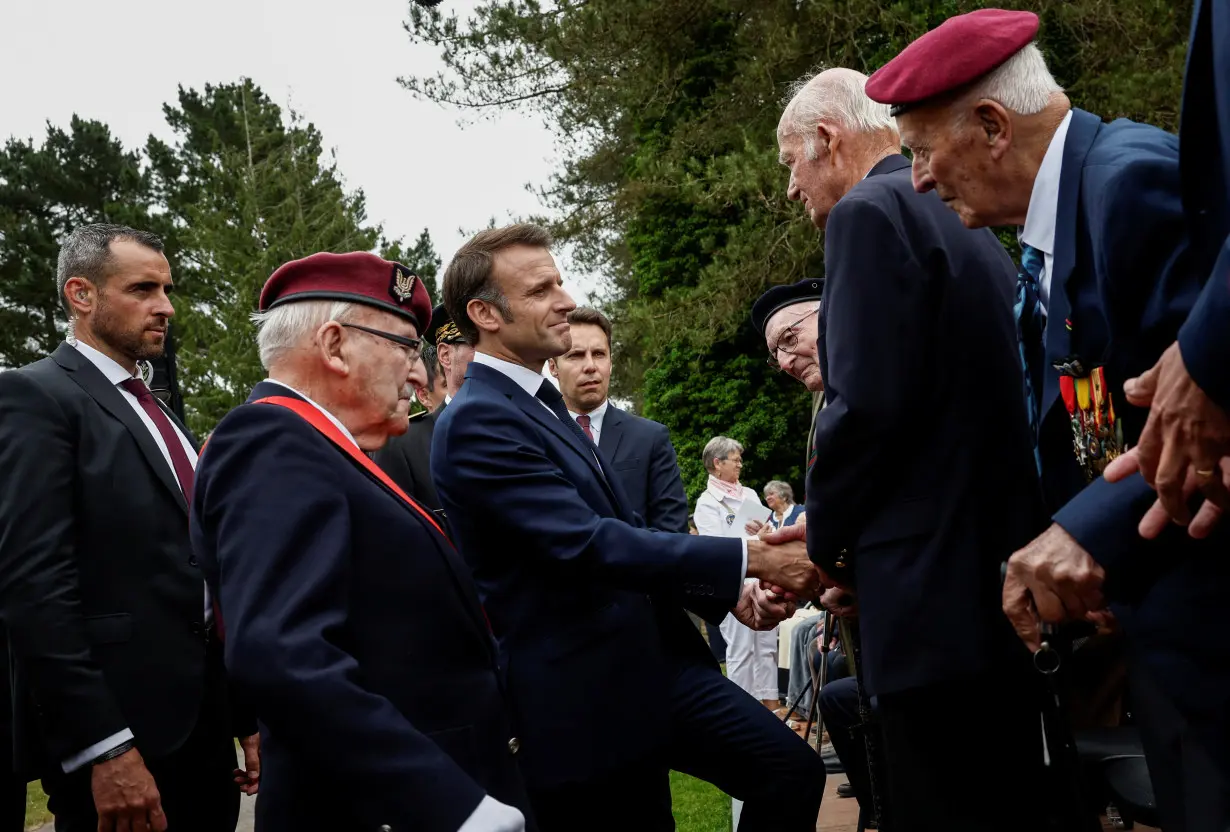
The city of 12,000 people at the time was 90% destroyed. Only two streets were left undamaged.
"This trauma turned our city into the 'capital of the ruins', as playwright Samuel Beckett wrote," the city's mayor, Emmanuelle Lejeune, told Reuters.
Colette Poirier, four at the time, was from nearby Belval. She recalls that, with her family, in the early hours of June 6th, they tried to sleep outdoors, to try and hide from all the planes flying over.
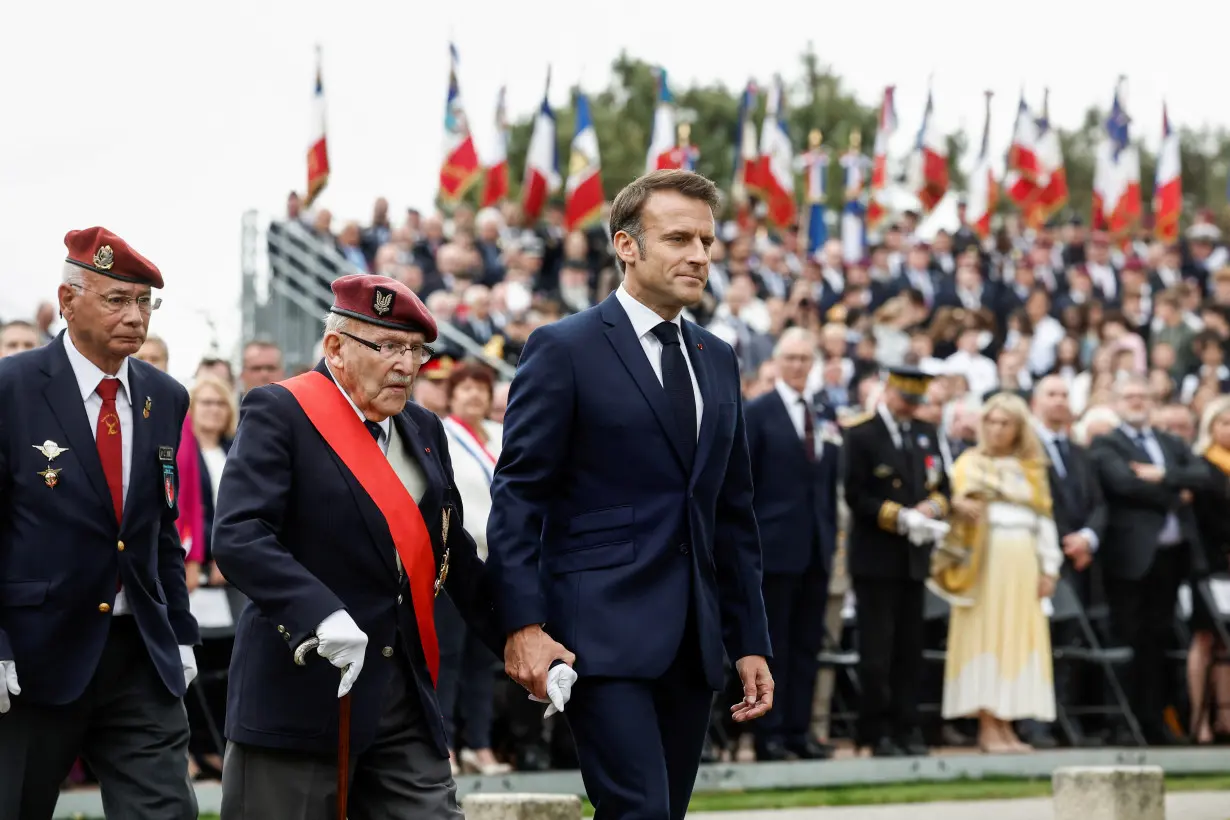
She also has happier memories.
"In the following days we saw jeeps with Black soldiers, it was the first time I saw Black men. And the chewing gums (they handed out)! Since we hadn't had much sugar during the war we were very keen, but we had no idea how to eat them."
Poirier said German soldiers occupied the family farm, and as a consequence she spoke German as a kid. She was amazed, she said, at the speed of reconciliation between France and Germany at the time.
Fick and Poirier were both waiting for Macron to give a speech in tribute to Saint-Lo's civilian victims of D-Day.
More ceremonies will take place on Thursday with world leaders including U.S. President Joe Biden and Ukrainian President Volodymyr Zelenskiy, in attendance.
(Writing by Ingrid Melander; editing by Philippa Fletcher)

 Supreme Court will hear Texas anti-pornography law that challengers say violates free-speech rights
Supreme Court will hear Texas anti-pornography law that challengers say violates free-speech rights
 Yellen defends COVID spending, says it saved millions from losing jobs
Yellen defends COVID spending, says it saved millions from losing jobs
 Futures flat on caution ahead of bank earnings, key inflation data
Futures flat on caution ahead of bank earnings, key inflation data
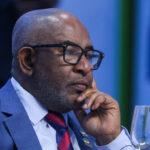 Comoros ruling party wins parliamentary elections, opposition rejects results
Comoros ruling party wins parliamentary elections, opposition rejects results
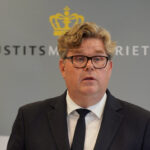 Sweden seeks to change constitution to be able to revoke citizenships
Sweden seeks to change constitution to be able to revoke citizenships
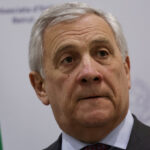 Italy protests to Venezuela over arrest of NGO worker
Italy protests to Venezuela over arrest of NGO worker
 Coors Light is changing its name
Coors Light is changing its name
 Tiger Woods’ son Charlie chuckles while watching his dad suffer heavy defeat in TGL debut
Tiger Woods’ son Charlie chuckles while watching his dad suffer heavy defeat in TGL debut
 Bayern Munich signs US youngster Bajung Darboe from LAFC
Bayern Munich signs US youngster Bajung Darboe from LAFC
